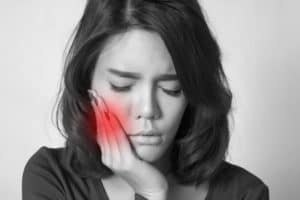Immediate Care for Dental Emergencies in Wilmington, NC
For a dental emergency, please contact our office as soon as possible (910 762 4155) or proceed to the nearest emergency room.
Dental emergencies can occur unexpectedly, demanding swift attention. When faced with the need for urgent dental care, it’s crucial to locate an emergency dentist in Wilmington, NC, promptly. Any dental emergency, regardless of its nature, should be treated seriously, emphasizing the importance of seeking immediate medical attention to prevent further damage, including potential tooth loss.
Common Dental Emergencies
Various dental emergencies may arise, each requiring specific care until professional help is accessible. If you encounter any of these situations, do not hesitate to contact an emergency dentist in Wilmington, NC at Plage Dentistry. Prioritizing your oral health is paramount, and taking prompt action is essential when faced with dental emergencies.
Toothache Relief:
- Rinse the mouth with warm water and use dental floss to remove any debris around the teeth. For additional relief, consider an over-the-counter painkiller following the label instructions. If there’s swelling or pain in the face or gums, applying a cold compress can help reduce both.
Chipped or Broken Teeth:
- Swift action is crucial. Preserve any pieces if possible and use gauze to control bleeding. Similar to a toothache, apply a cold compress to reduce swelling and pain, and consider an over-the-counter painkiller for comfort. Remember, a quick response is key to addressing these dental issues effectively.
Knocked-Out Tooth:
- Retrieve the knocked-out tooth if possible and gently rinse it clean—do not scrub! If it’s possible to do so, reinsert the tooth into the socket, ensuring that it’s facing the right direction. If you cannot do so comfortably, place the tooth in a glass of milk and take it to a dentist or an emergency room as quickly as possible.
Lost Fillings:
- Lost fillings can be treated with an over-the-counter emergency sealant or a piece of sugarless chewing gum. Do not use gum with sugar as it will cause pain, discomfort, and perhaps further damage. Seek dental care as soon as possible.
Lost Crown:
- A lost crown should be treated reasonably quickly. Contact your dentist and make an appointment as soon as possible and make sure to bring the dislodged crown with you. You may attempt to reattach the crown with a dental adhesive, but do not use superglue or a similar product.
Again, please err on the side of caution. If bleeding or severe pain is present, contact the emergency room or our office. For less serious issues, please contact Plage Dentistry as soon as possible to get scheduled.
Why Choose Plage Dentistry for Emergency Dentistry in Wilmington, NC?
At Plage Dentistry, we understand that dental emergencies require immediate attention. Our experienced emergency dentists in Wilmington, NC, are equipped to handle all types of dental emergencies, ensuring you receive the best possible care.
- Immediate Assistance: We provide prompt treatment for dental emergencies to prevent further complications.
- Experienced Team: Our emergency dentists have extensive experience in handling various dental emergencies.
- State-of-the-Art Facility: We use the latest technology to provide effective emergency dental care.
For urgent dental care, call us at (910 762 4155) or visit Plage Dentistry in Wilmington, NC.
